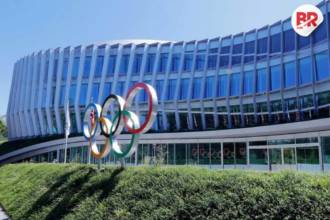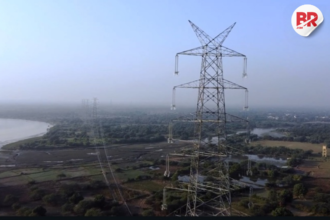
In a sharp blow to Vodafone Idea, the Supreme Court on May 19 dismissed the telecom company’s plea seeking a waiver of ₹45,457 crore in adjusted gross revenue (AGR) dues. Vodafone shares dropped nearly 8% after the verdict, trading at ₹6.76 on the BSE by early afternoon.
This ruling isn’t just a boardroom problem. With Vodafone Idea already on life support, today’s verdict could have a serious impact on competition, service quality, and millions of mobile users across India.

“Not Expected of a Multinational Company”
A bench of Justices J B Pardiwala and R Mahadevan didn’t mince words, calling the pleas by Vodafone, Airtel, and Tata Teleservices “misconceived.” Senior advocate Mukul Rohatgi, appearing for Vodafone, was told plainly:
“We are really shocked… This is not expected of a multinational company. We will dismiss it.”
The court’s disapproval echoed like a warning shot to corporate India: you can’t rewrite dues just because the numbers are scary.
Also Read GPT Infra Has Delivered 50% Profit Growth in Q4; Stock Has Climbed 4%
Vodafone: A Company in Crisis
Vodafone Idea’s petition argued it wasn’t asking for a judgment review—just some breathing room from penalties, interest, and interest-on-penalties. With the government now holding a 49% stake in the company post-equity conversion, Vodafone tried to frame the plea as a public interest issue, not just a corporate bailout.
Their argument:
- They serve 18% of India’s mobile users.
- They employ 20,000+ people.
- And they still owe ₹1.19 lakh crore in spectrum-related dues alone.
In simpler terms: “If we go down, it’s not just us going down.”
Also Read Stocks to Buy Under ₹100: Experts Recommend These 6 Shares Today — 19 May 2025
Airtel and Tata Also Turned Away
Vodafone wasn’t the only one pleading. Bharti Airtel and Bharti Hexacom sought relief from ₹34,745 crore in dues. Like Vodafone, their plea focused on waiving the interest and penalties—not the principal amount.
But the Supreme Court stood firm. After all, back in 2020, it had already given telcos a 10-year window to pay off ₹93,520 crore in AGR dues. It even rejected their 2021 review plea to fix calculation errors. This time, the court simply wasn’t buying the rebranded pitch.
If Vodafone Idea collapses, the Indian telecom market could shrink to a two-player race: Reliance Jio vs. Airtel. Less competition means higher prices, weaker service, and slower innovation. For a country pushing Digital India, that’s a dangerous turn.
Also, if a company part-owned by the government still gets no mercy, smaller players won’t dare hope for leniency. The Supreme Court has made one thing clear: rules are rules—even if they break you.
The Bigger Picture
The AGR saga began years ago when the government reinterpreted “revenue” to include everything from rent to interest income. Telcos pushed back, lost in court, and have been scrambling ever since.
Today’s judgment is just another chapter in a long, messy telecom tale—where the bill keeps growing and relief keeps shrinking.
Vodafone thought it could dodge the storm by leaning on fairness. The court, however, delivered a thunderclap of finality.
As the stock plunges and survival looks uncertain, one thing is clear: mercy is not part of the Supreme Court’s telecom plan.
Also Read Divis Labs Shares Rise 5% After Strong Q4 Results, Declares ₹30 Dividend Per Share












